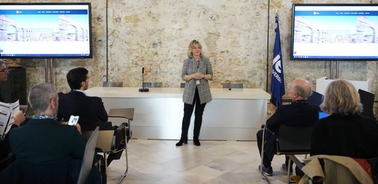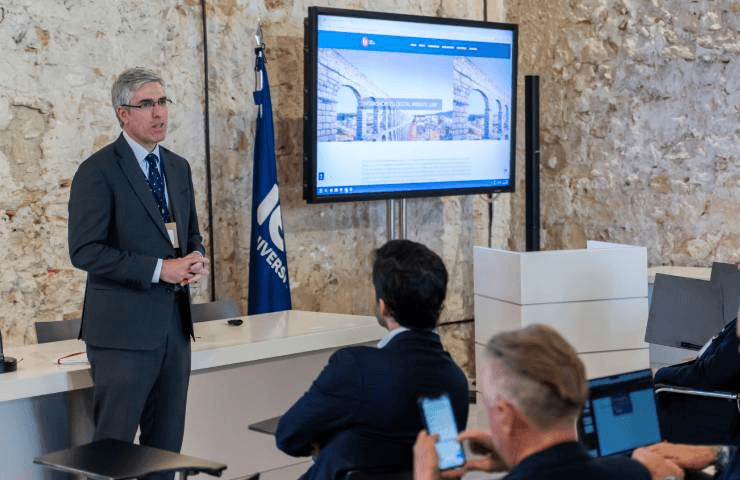- Home
- We Are Law School
- News
- Ie Law School Explores The Impact Of European Digital Law In Segovia
IE Law School explores the impact of European digital law in Segovia

The “EU Digital Private Law” workshop offers an in-depth debate on the new European digital legislation and its impact on contemporary civil law.
On May 7 and 8, the Segovia campus of IE University hosted the workshop “EU Digital Private Law,” organized by IE Law School. This international event brought together leading academics and legal experts to analyze the effects of the European Union’s new digital regulatory framework on private law, both at the European and national levels.
The workshop is based on a clear premise: the EU has built a digital legal framework that goes beyond traditional sectoral regulation. This new body of legislation—which includes the Digital Markets Act, the Digital Services Act, the Data Governance Act, the AI Act, and the well-established General Data Protection Regulation (GDPR)—constitutes a true ius civilis digitalis: a civil law adapted to the digital reality. Unlike constitutional law, this legislation targets not only states but also, notably, large tech companies as key actors responsible for managing and mitigating digital risks.
The legal framework acknowledges the central role of private relationships in shaping the digital space. It therefore intervenes through private law rules and market regulation, extending its scope beyond purely economic interests. Key innovations include:
The incorporation of non-economic objectives linked to constitutional rights.
The expansion of the concept of the weaker party to include SMEs within the business side of the market.
The removal of the commercial/non-commercial distinction when applying certain protections.
Over the course of two days, the workshop explored how these transformations impact the body of European private law from a lege lata perspective. The program featured panels on topics such as market regulation and society, the redefinition of fairness, digital transactions, and mechanisms of liability and enforcement.
The event featured prominent speakers such as Hans-W. Micklitz (European University Institute), Simon Deakin (University of Cambridge), Giovanni de Gregorio (Catholic University of Milan), Geraint Howells (University of Galway), and Lazar Radic (IE Law School). From IE Law School, professors Francisco de Elizalde, Guadalupe Martínez, and Antonio Aloisi also took part. It also welcomed Mateja Durovic, judge at the European Court of Human Rights, among other distinguished guests.
This international event is supported by the Spanish Ministry of Science, Innovation and Universities as part of the research project PID2023-149184OB-C43. More information is available at www.ie.edu/law-school and lawtomation.ie.edu.
The event underscores IE Law School’s commitment to critically engaging with the legal challenges of Europe’s digital transformation.
SEGOVIA CAMPUS OF IE UNIVERSITY
The event was held at the historic Convent of Santa Cruz la Real, home to IE University’s Segovia campus. This 13th-century building—the first convent of the Dominican Order in Spain—was rebuilt by the Catholic Monarchs in the 15th century and has served various religious and educational purposes throughout its history. Declared a National Heritage Site in 1931, it forms part of Segovia’s historic quarter, a UNESCO World Heritage City.

